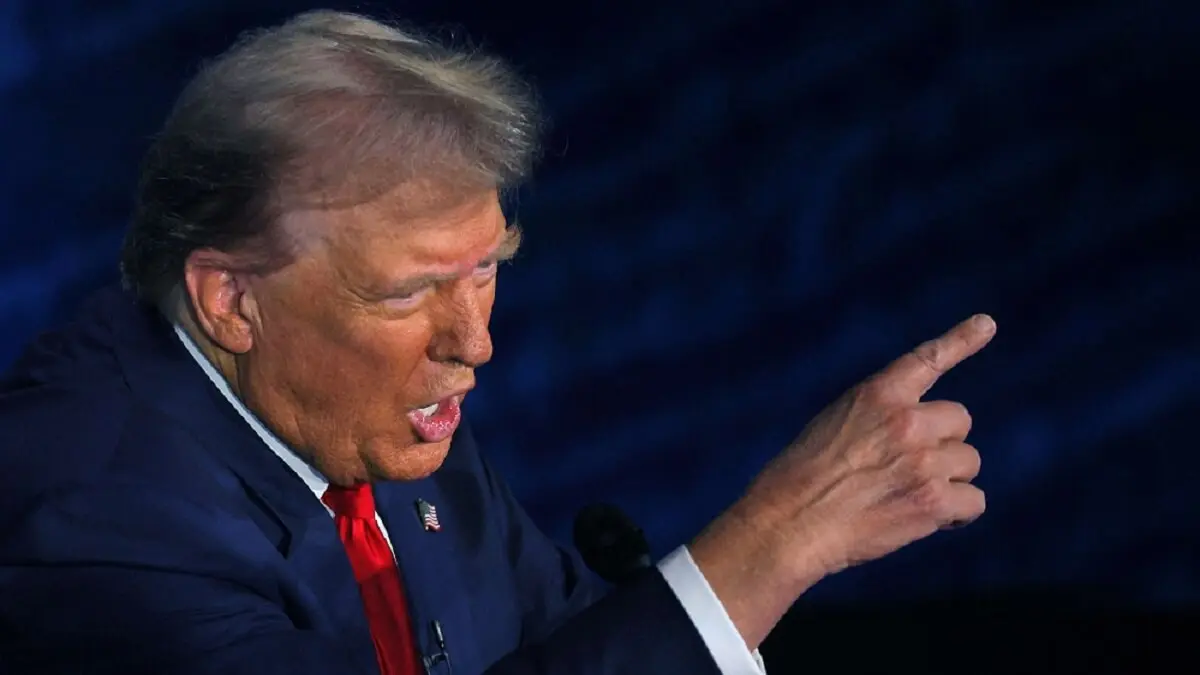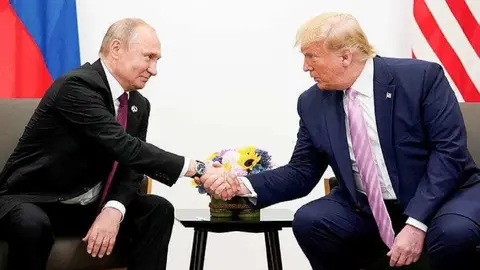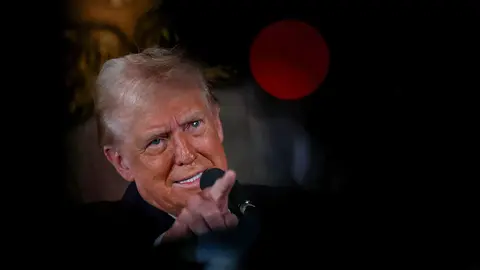Europe's far right draws inspiration from Trump to come to power

- Scholz condemns interference
- Austria the far right will form a government
- Meloni and Orbán the allies
In recent days, the South African megamillionaire Elon Musk has launched a hate campaign on his social network X against the Labour Prime Minister of the United Kingdom, Keir Starmer, accusing him of collusion during his time as a prosecutor for not prosecuting several people involved in a child sexual exploitation scheme in the UK that allegedly took place more than a decade ago.
Since the election campaign, Trump himself in several speeches accused Starmer of ‘blatant foreign interference’ in the US presidential election for a trip by his activists to help the candidacy of Kamala Harris.
Trump's lawyers then filed a complaint against the UK Labour Party because 100 members of his party travelled to the US to campaign for Kamala Harris in four states.
Prime Minister Starmer denied that they were sent on behalf of the Labour Party and countered that they were just activists sympathetic to Harris who volunteered on a personal basis.
Since Trump's victory, it has been Musk who has taken to his social media to scathingly attack the left-wing Starmer government, calling for his resignation and in an outburst posted on his X account whether ‘America should free the people of Britain from their tyrannical government’.
The British Prime Minister responded to the X owner that he had ‘crossed a line’, accusing Musk of ‘spreading lies and misinformation’.
Before embarking on his political career, Starmer served as the UK's Director of Public Prosecutions, leading the Crown Prosecution Service during the country's child exploitation gangs scandal from 2008 to 2013. A case that has now been investigated and is closed.
The reality is that Trump does not want to get along with the Starmer government and seeks a change of leadership that would allow a rapprochement on the issues that most interest the Republican: climate change denialism; anti-immigration policies and rhetoric; isolationism and no support for Ukraine against the Russian invasion.
Scholz condemns interference
Musk, along with Indian-born businessman Vivek Ramaswamy, will head the Department of Government Efficiency (DOGE) and has become Trump's main ally, showing a deep supremacist ideological synchronicity. In Germany, his social network encourages the triumph of Nazi ideological groups.
In the midst of the political-electoral effervescence in Germany, in view of the upcoming general elections on 23 February, Musk also intends to interfere by manoeuvring in favour of the extreme right: ‘Only the AfD can save Germany from hecatombs’.
His support is also unconditional, in fact, he held a live conversation broadcast on X with Alice Weidel, leader of the Alternative for Germany (AfD). Weidel is an economist and lesbian as well as the granddaughter of former Nazi judge Has Weidel.
At the time, Angela Merkel herself, in her years as prime minister, devoted constant speeches to reminding her compatriots of all the devastation and death caused by Nazism in her country. Merkel reiterated time and again that democracy may be imperfect, but it is the best form of government and the only one in which all citizens count.
In the current election polls, the AfD is positioned as the second political force in the Bundestag, behind the conservative CDU and ahead of the Social Democratic Party to which the current chancellor, Olaf Scholz, belongs. If this prediction comes true, it would be a landslide victory and they would go from having seventy-seven MPs in the Bundestag and being the fifth political force to having a much more preponderant role in German politics.
This party, Alternative for Germany, founded in 2013, is known in Europe as the most ultra-right-wing party: xenophobic, ultra-nationalist, discriminatory, anti-immigration and anti-European. He has as much support in Thuringia as Adolf Hitler once had in launching his Nazi party.
In his New Year's speech, Chancellor Olaf Scholz sent a clear message: ‘Where Germany goes from here is for you, the citizens, to decide. It will not be decided by the owners of social media channels’.
He continued: ‘In our debates, one can be forgiven for sometimes thinking that the more extreme an opinion is, the more attention it will get. But it will not be the person who shouts the loudest who decides where Germany goes from here. Rather, it will be up to the vast majority of reasonable and decent people’.
Austria the far right will form a government
Dialectics has the peculiarity of repeating cycles. In Austria, citizen protests have begun to prevent the far right from governing for the first time since the end of World War II after the fall of Nazism.
The anti-immigration, Eurosceptic Freedom Party, which opposes sanctions against Russia and is led by Herbert Kickl, won Austria's parliamentary elections last September with 28.8% of the vote. The Austrian People's Party of outgoing chancellor Karl Nehammer came second.
President Alexander Van der Bellen gave Nehammer the first chance to form a government, but he failed in his attempt and now gives the far-right Freedom Party the formation of the government. The People's Party has stepped forward and indicated that it would be willing to ally itself with Kickl.
For the New York Times, Berlin correspondents Jim Tankersley and Christopher F. Schuetze warn that the political party about to lead Austria would bring an already conservative country into a growing group of nations moving to the far right of European politics. ‘It has flirted with Nazi slogans, moved closer to Russia and provoked warnings from Holocaust survivors' groups.’
According to both correspondents: ‘If they succeed in forming a government, it would be a shock to the Austrian political system and a new jolt to Western Europe.’
Unlike in neighbouring Germany, where all other parties have refused to include the right-wing populist Alternative for Germany in governing federal coalitions, other parties in Austria have allowed the Freedom Party to share power for years as a junior partner.
The Freedom Party (FPO) was founded in 1950 by former members of the SS and has broadened its appeal in recent elections with an anti-establishment message. The party has won the support of workers, university graduates and, above all, women. In the 2024 European Parliament elections it was the most popular party among millennial voters.
Meloni and Orbán the allies
Hungary's Prime Minister Viktor Orbán is the most hackneyed representation of the European far right with his Fidesz party and is the European Union's toothache. ‘He has been Hungary's Prime Minister since 2010, to date, although he governed between 1998 and 2002’.
Orbán has shown himself to be Trump's closest ally in the EU and is equally attuned to Russian dictator Vladimir Putin. He has always opposed European support for Ukraine's invasion.
The Hungarian bishop has offered himself as a liaison between Putin and Trump and last year set up his own group within the European Parliament, which was joined by several European far-right political groups with seats in the European Parliament. His group, Patriots for Europe, brings together ultra-right-wingers from Hungary, Austria and the Czech Republic.
Then there is Giorgia Meloni who is the pretty face of the European far right. The Prime Minister whose party is Brothers of Italy, heirs of Benito Mussolini's fascism, is already selling herself as a close friend of Musk and Trump's next ally.
What about the relationship between Meloni and Musk? Some of the European press went so far as to suggest a possible ‘affair’ between the Italian prime minister and the owner of SpaceX.
‘Meloni is much prettier on the inside than on the outside. She faces what real leadership is, and Italians should be proud of her for how well she does things,’ Musk said at an event last September, where he presented Meloni with the Global Citizen Award.
But what does Musk want in Italy? He wants to take over Italy's satellite contracts and for his company Starlink to be the supplier instead of Iris, which is the European programme. Starlink provides military intelligence and security information; the contract would be done through SpaceX, another of the billionaire's companies.
SpaceX is discussing a five-year deal worth a total of €1.5 billion to provide a range of services for Minister Meloni's government.
All the alarm bells have already gone off for the Italian opposition who question both Meloni's personal and business relations with Musk, to which the premier has already responded: ‘We are simply in the investigation phase, that's why I don't understand all the accusations that have been made. Is the problem with SpaceX that it is a private company, or is it Elon Musk's political ideas?’
Italy is evaluating the use of Musk's space telecommunications system to provide communications between the government, Italian diplomats and defence officials operating in sensitive areas around the Mediterranean.
Meloni insists Italy faces a dilemma over how to protect its sensitive communications, as there are currently no alternative systems to Starlink backed by Italy or the EU. Full deployment of the EU's Iris2 satellite constellation is not expected before the end of 2030.
So Musk, Trump and their allies on the European and international far-right are not going to go along without doing business with each other, as well as nurturing, pursuing a common political agenda in which they loathe immigrants, deny climate change and will not lift a finger to defend a third party in conflict because their isolationism is more important than any rules written by multilateralism.



